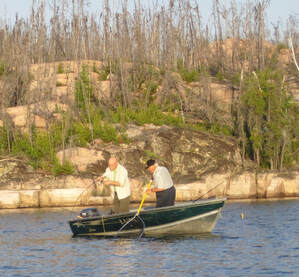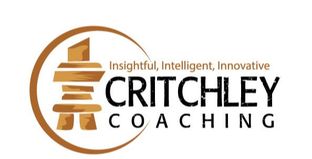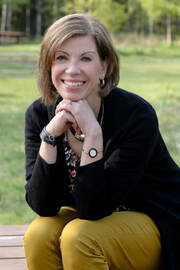
We are heading off to Ontario for a few wonderful celebrations. We have two wedding ceremonies and receptions to attend, and we will celebrate the wonderful milestone of Jim’s mom turning 90. We’re also managing to squeeze in a trip to Toronto to see Come From Away. This one has been on my list since I first heard about it and I can hardly wait to experience it! The spaces between those activities will be nicely filled in visiting the rest of our family and friends. One thing I shouldn’t do before this trip is to wonder how to fill our days!
As happens to so many of us, as we are mentally preparing for trips, we suddenly find ourselves with long lists of things we should do before we drag the suitcases out the front door. I often suddenly need a clean fridge and a completely checked-off office to-do list. Things that I might never have thought of should I be staying home for the week soon become urgent. It seems imperative to start looking at all toiletries; shampoo that could easily last another month promptly becomes top priority to refill. Appointments I have put off making, for no other reason than they aren’t urgent, suddenly call to me to get them written on my calendar. I should touch base with so and so I think. And I should definitely vacuum out my car! I really should download the pictures from my phone too.
On and on the list of shoulds goes. I know I’m not the only one to do this. Jim does it too. And many of our friends tell of the relief they feel when they finally drive away from their homes or get on the plane or train, finally able to let go of what they should be doing.
And I began to wonder why we, as our friend Jack would say, ‘Should on ourselves’?
It’s one thing to should on ourselves over a fabricated list of things to do before a holiday. This is almost forgivable. It certainly is understandable. Sadly, our should-ing is rarely limited to the days before travel.
It can’t possibly be healthy to should this much.
There is something about should that immediately slams shut the doors of creativity and possibility, sending us a message there is only one way to approach a matter, that makes us feel like we are lacking in some way, that there was a point of pivot that we clearly missed and had we not, our lives would be oh so much better. The use of should has a heaviness to it. It comes with shame, pointing out that a more satisfactory person, would surely never find themselves in this position. If only we had somehow been better.
It’s even more paralyzing when someone else tells me I should. ‘You know what you should do?’ they might say. ‘You should….’
It could be partly rebelliousness that causes me to bristle at this. More likely though, it is the idea that someone else thinks they have the single answer for me. Even worse is the fact they think they need to guide me, as if I were lost and unable to find my way. I suppose I should be grateful there are clearly such smart people looking out for me. Alas, I am not.
If we are lucky to live long enough, we start to understand that in the mundane decision-making of our daily lives, there really is no right or wrong, no best or worst and not even much good or bad. Most of our decisions are not life-threatening. Most of the choices we make are simply those taken from long lists of possibilities.
Just over nine years ago, on a beautiful late May morning, I went for a bike ride with Jim and Greg, who was home for the weekend. I suppose I should have done my housework before we left. I likely should have planted the garden too. Maybe even mowed the lawn of our acreage. As it was I did not. On the bike ride, I fell, breaking my collarbone and four ribs. I was left pretty incapacitated and in substantial pain for some time. I did not return to work for the balance of the school year.
To complicate matters, Jim was scheduled to leave the following week with my brothers, brothers-in-law and my Dad to go to a remote fly-in fishing lake to spend five days fishing and celebrating Dad’s 80th birthday. Jim wondered if he should stay home. He knew we still needed to mow the lawn and plant the garden and clean the house. But I encouraged him to go, as they had all been so excited to be part of this birthday trip.
My dad unexpectedly died on the last day of that fishing trip. There was no warning. There were no advanced symptoms. His heart got tired, he rested his head on Jim’s chest and left this earth. I was so grateful Jim had not listened to his shoulds, and that he was by my Dad's side.
I’m not completely clear about the details of the next week. I know we made a trip to Ontario for Dad’s funeral. What is completely clear is what I faced when we drove down our driveway upon arriving home. I expected to face all of the shoulds Jim and I had left behind, but I did not. Our lawn was perfectly mowed and manicured. The garden was rototilled. There appeared to be rows of vegetables planted. There were flowers in the flower beds. And when we entered our home, the vacuuming was done, the dust had disappeared and the floor and windows sparkled.
Over the next few days I learned that a group of our friends had come to our aid. Not because they should. Not because we should have but did not. Just because it was how they felt they could show their support. Maybe I should have felt embarrassed but I only felt loved.
These days I still find myself should-ing sometimes. But I’ve grown a bit wiser, so when I hear the beginnings of should I just exaggerate that initial consonant blend so it sounds much more like shhhhhhhh. I’ve discovered that there are gifts to be found under our piles of shoulds.
My inquiry for you this week is, ‘How am I should-ing on myself?’
Elizabeth is a certified, professional Life and Leadership Coach, and the owner of Critchley Coaching. She is the founder and president of the Canadian charity, RDL Building Hope Society. She works with corporations, non-profits and the public sector, providing leadership and personal coaching for individuals and teams. She creates and facilitates custom workshops for all sizes of groups. Contact Elizabeth to learn how to spend less time should-ing on yourself.


 RSS Feed
RSS Feed